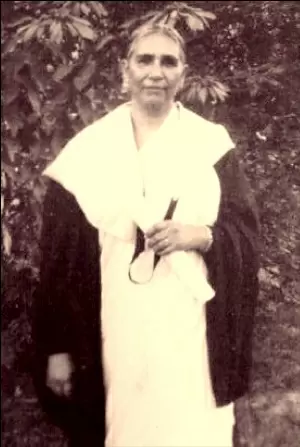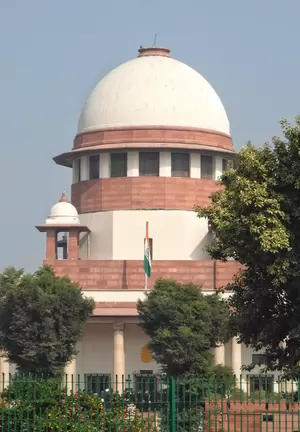Documenting narratives of women’s success that were taken for granted

17-May-2014
Vol 5 | Issue 20
In many of our homes there are those old black-and-white photographs, some probably framed, others lying in some album that we rarely pore over.
These are representations of our mothers, aunts, or grandmothers. There they stand in their black robes to signify their graduation, or perhaps the photographer caught them sitting behind the wheel of a car, hiking in the mountains, or in some equally interesting situation.
 |
|
The First Graduate initiative is an attempt to keep alive women’s stories. In photo, Inder Kaur strikes a sombre pose holding her Master’s degree in Punjabi literature from University of Delhi, 1958 (Photo: Prajnya ArchivesSupriya Singh)
|
Chances are that these photos are the only representations we have of those moments. They are precious because they constitute the only visual record we have of the women of those times. Yet, unfortunately, with each passing year, they are disintegrating, getting lost, or sometimes simply ending up dumped in some rubbish heap.
One woman who wants to change this reality is Dr Swarna Rajagopalan, the founder of the Chennai-based organisation, Prajnya. She puts it this way, “These photographs are the only places where history and experiences (beyond their familial life) of the women of those ages were recorded. If we lose them we are losing our history.”
Founded in 2007, Prajnya is an interesting initiative, run totally by volunteers, many of whom are pursuing demanding professions but still make time for the organisation out of their commitment to women’s issues.
They are a mixed group. Rajagopalan herself is a Chennai-based political analyst; then there is Shilpa Anand, a Mumbai-based partner of an engineering firm, besides Dr D. Jayashree, an ayurvedic physician, and Anjale Stephanos, a management professional, both in Chennai.
‘The First Graduate’ initiative is an attempt to keep alive women’s stories and their possible place in history by crowd-sourcing family photographs and profiles of women who had graduated before the year 2000, and digitally preserving them.
Rajagopalan points out that in most families it is the men who tend to flaunt their societal impact while the women downplay their roles outside the home once they settle into family life.
“Do we know the names of the women who marched in Vedaranyam or Dandi? Possibly, not even their families know of them. So in Prajnya we began by saying, let us create a place where women can document their role in history and decided to focus on the first woman graduate in the family,” she explains.
That was how ‘The First Graduate’, a Prajnya Archives project, began. Rajagopalan hopes that this material will serve as vital primary sources for the writing of the history of women in South Asia.
The initial aim of the ‘The First Graduate’ intervention was to create a historical repository of stories and photographs. But there was an unintended spin-off.
It created a buzz within the participating families. “Women have written to us revealing how their children had expressed their amazement over the feats of their grandmas, aunts, mothers, that they had earlier been clueless about,” Rajagopalan reveals.
The profiles that emerge are interesting – each in its own way. According to Dr Sudha Rajagopalan, the curator of Prajnya Archives, “Each story has something that distinguishes it – sometimes it’s a personal struggle, at other times it is outstanding academic accomplishment, and on a few occasions it’s about a woman’s unconventional life choices.”
To take this initiative further, Prajnya would like nothing better than to get volunteers to carry scanners and laptops to malls and other meeting places, and invite women passing by to reveal their stories and share their photos. “Unfortunately, we don’t have the volunteer strength to do this,” rues Rajagopalan.
So far, ‘The First Graduate’ has received 60 entries from India and Pakistan, with the earliest graduate profiled being a woman who graduated in 1922.
Word of this archival project was spread mostly through the personal networking of Prajnya volunteers who found the social media, especially Facebook, a very useful platform.
“The stories we received were so fantastic, and their voices were so powerful and authentic that we didn’t edit them or even add punctuation marks,” Rajagopalan reveals.
This archival initiative is by no means over. If you are the first woman graduate in your family or would like to share such a story about someone known to you, you can email the photo and text profile of the concerned woman to [email protected]. The profiled woman, however, must have graduated before the year 2000.
Each one of these images tell a story and by compiling them Prajyna will unleash a sea of stories that focus on these unassuming, faceless women whom we had taken for granted all these years. - Women's Feature Service
















